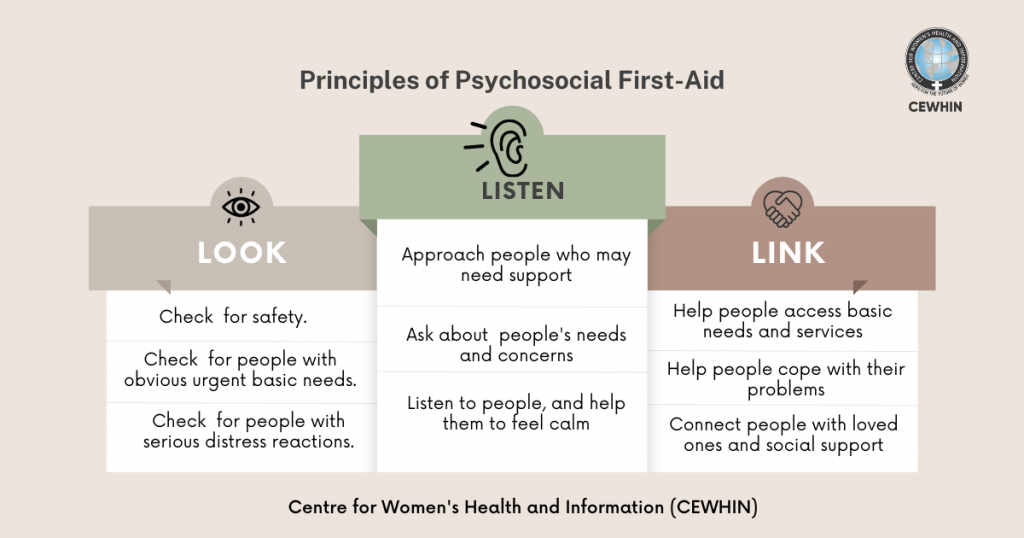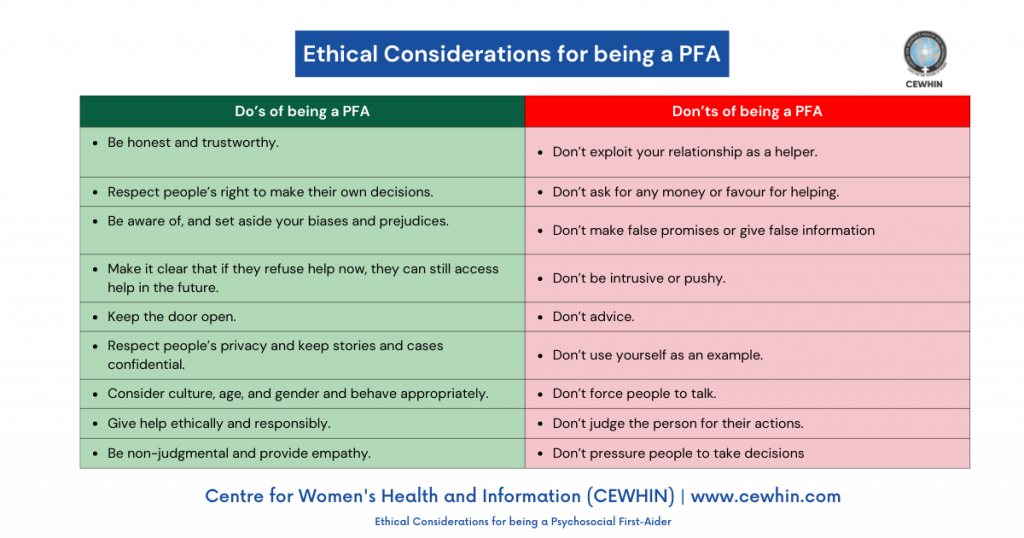Psychosocial First-Aid (PFA) is a humane, supportive response to a fellow human being who is suffering and in need of support. It is provided in response to emergency situations arising as a result of emotional or psychological injuries before expert medical care is sought.
Psychosocial First-Aid includes but is not limited to the following:
· Providing practical care and support that does not intrude.
· Assessing needs and concerns.
· Helping people to access basic needs (e.g. food and water, information).
· Comforting people and helping them to feel calm.
· Helping people connect to information, services and social support.
· Listening.
· Protecting people from further harm.
What PFA is not
· PFA is NOT an intervention that can be given by professionals only.
· PFA is NOT professional counselling.
· PFA is not a clinical or psychiatric intervention (although it can form part of it).
· It is NOT asking people to analyse what happened or put time and events in order.
· It is NOT pressuring people to tell you their feelings or reactions to an event.
Who Can Receive PFA Training?
· Everyone should become familiar with the basics of providing PFA. As a PFA, you can step down this training to people in your community.
· All first responders including fire, police and crisis response teams
· Health care professionals
The 3 Action Principles of Psychosocial First-Aid
In providing psychosocial support to survivors, here are the 3 action principles for first-aiders to follow.

LOOK (pay attention to a situation)
- Establish what has or is happening
- Establish who needs help
- Identify safety and security risks
- Identify physical injuries
- Observe emotional reaction
- Observe for safety
LINK (take action to help)
- Connect the person with loved ones and social support
- Find and give information
- Obtain services and other help
- Help the person in distress to find solution to their needs and problems
- Help people cope with problems.
LISTEN (pay attention to a person)
- Introduce yourself
- Pay attention and listen attentively
- Accept the other person’s feeling
- Calm the person in distress
- Listen actively
- Concentrate actively on what the affected person says
- Make frequent eye contact and ensure that your body language signals that you are listening
- Take time to listen when people describe what happened
Ethical Considerations for being a PFA
In offering psychological support to survivors, it is important to avoid causing further harm but providing the best care possible while acting in the survivor’s best interest. Help must be offered in the most appropriate manner.

Common Reactions to Traumatic Events
§ Recurrent fear that the event will take place again – sense of vulnerability and insecurity
§ Worry that their loved ones or they themselves will be hurt or separated
§ Disturbance of sleep
§ Anxiety and hyper-aroused state of vigilance
§ Moodiness and irritability
§ Turning to drugs for solace
§ Self-blame
§ Poor attention and concentration
§ Social withdrawal and simply wanting to be left alone
Take our Community Psychosocial First-Aid Course via our mobile app. Download GBV Tête-À-Tête app on the Google PlayStore to take the course.


